The UK Government has reiterated it is "committed to keeping the transition to electric vehicles affordable" in a response to members of the House of Lords who have been urging it to do more to ease motorists concerns about a future driving EVs to reduce tailpipe emissions.
Yet members of the House of Lords Environment and Climate Change Committee have been left disappointed that Rishi Sunak's government will not come up with more incentives to help more people access electric cars nor to offset the higher costs of those owners forced to regularly charge their EV on expensive public chargers.
The head of the committee has warned that the UK Government's desire for an EV revolution could be "a non-starter" if more is not done.
The committee had called for targeted grants to incentivise the purchase of EVs after the Government withdrew the plug-in car grant in June 2022. Since its inception in 2011 it delivered £1.5bn in grants and subsidised nearly half a million new vehicles, the Government said, but its policy now is to target incentives where they have the “most impact and deliver the greatest value for money”, including motorcycles, vans, taxis, trucks and wheelchair accessible vehicles until at least financial year 2024/25.
In its response, published last week, the Government agreed that all cabinet members will be driven in EVs by the end of 2024, and the central government car and van fleet will transition to zero emission vehicles by 2027.
Baroness Parminter, who chaired the House of Lords EV inquiry, which was launched last August, said: “Whilst we welcome the Government’s acceptance of some of the recommendations in our report, it is particularly disappointing that it is not committing to incentivising the purchase of more EVs, equalizing the VAT differential between public and domestic charging, or addressing our concerns about barriers to charging in multi-occupancy buildings.
“If implemented, these recommendations would help people to adopt EVs and ensure a smoother journey towards net zero.
“Peers will keep urging the Government to do more, as otherwise the EV revolution is a non-starter.”
More than a decade since electric cars went on sale, barely two in every 50 of the almost 36 million cars registered for UK roads at present is capable of zero emissions electric-powered propulsion.
Incentives for used EVs
A natural market adjustment, which wiped thousands off the residual values of used electric cars and made them look more affordable to more car buyers, was cited in response to the committee's request for ministers to review schemes used in other countries to support the purchase of second-hand electric cars.
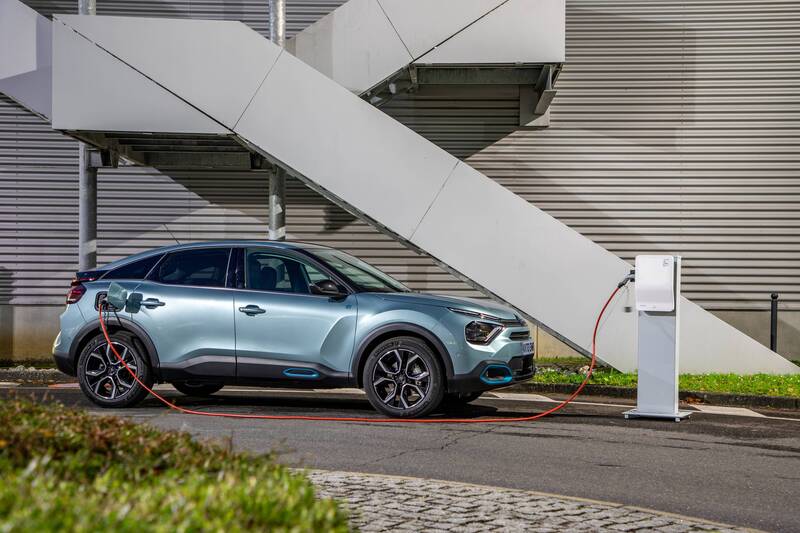 Nevertheless, the Government says it is chairing a working group to ascertain potential barriers to the uptake of used EVs, and it would "consider all policy options to address potential failures in the market.”
Nevertheless, the Government says it is chairing a working group to ascertain potential barriers to the uptake of used EVs, and it would "consider all policy options to address potential failures in the market.”
Some consumers are concerned about the battery health of used electric vehicles and the committee had called on the Government to accelerate its collaboration with industry to develop a ‘battery health standard’ that is objective and reliable.
The Government says it partially agrees with this recommendation. Through the United Nations Economic Commission for Europe (UNECE), the Government has worked with industry and other governments to develop a Global Technical Regulation on EV batteries (GTR 22) that would set minimum durability and lifespan standards.
It would also make reliable and comparable battery health information accessible to a vehicle’s owner.
Meanwhile the Zero Emission Vehicle Mandate, which came into force in January 2024, requires manufacturers to provide minimum warranties for EV batteries, in line with the GTR 22 durability standards. The Government says it is currently analysing options for the implementation of the GTR 22 battery regulations in the UK.
The House of Lords report called for the 20% VAT rate applied to public charging to be reduced to 5% in line with domestic electricity, to overcome a barrier for people with no home charging option, however, the Government has ruled out any change, instead defending the status quo, because it would “impose additional pressure on the public finances to which VAT makes a significant contribution”.
Sunak's Government has pledged to keep company car tax low for electric cars, which the committee had requested.
Benefit-in-kind (BIK) tax rates for electric vehicles, from 2025, will increase 1% year on year to a total of 5% for battery electric vehicles by April 2028, it said.
“By contrast the company car tax rate for petrol and diesel cars will increase by 1% in financial year 25/26 and then be maintained, with the most polluting cars subject to 37% rates by 2028.”
“The Government has committed to keeping the transition to electric vehicles affordable,” it added.
Damien Dally, Fiat UK managing director, had already suggested the government is sleepwalking into an electric vehicle crisis. "With confirmation that no electric car grant is going to be reintroduced, we would say the government is now well and truly on the cusp of that crisis," he added.
 He said the EV market for private buyers is "in real jeopardy", accounting for fewer than one in five (18.2%) new electric cars registered in 2024.
He said the EV market for private buyers is "in real jeopardy", accounting for fewer than one in five (18.2%) new electric cars registered in 2024.
"The government says it is targeting its incentives where they have the most impact and deliver the greatest value for money. Whilst we welcome that there is an incentive in place for electric van buyers, we know the biggest barrier to entry for a retail electric car buyer is price. Surely, then, the greatest impact would be to address this by helping to reduce the upfront cost of the car, via the reintroduction of a government grant. FIAT is playing its part in that with the continuation of its £3,000 E-Grant.
"Helping people make the switch to electric also supports the government’s Net Zero targets – targets we fully support."
However it is the duty of OEMs to sell electric cars at a price that attracts people to adopt the new technology, according to the head of one of Fiat's rivals.
Jeremy Thomson, managing director of Mazda UK, said in response to the Government's stance: "As manufacturers we have to build and sell electric cars that people want to buy at a price that gives them confidence to adopt EV technology. We have recently made price reduction changes to our MX-30 BEV to a starting price of £27,995 to make it the most affordable electric SUV on the market and on a par with many combustion-engine small family cars."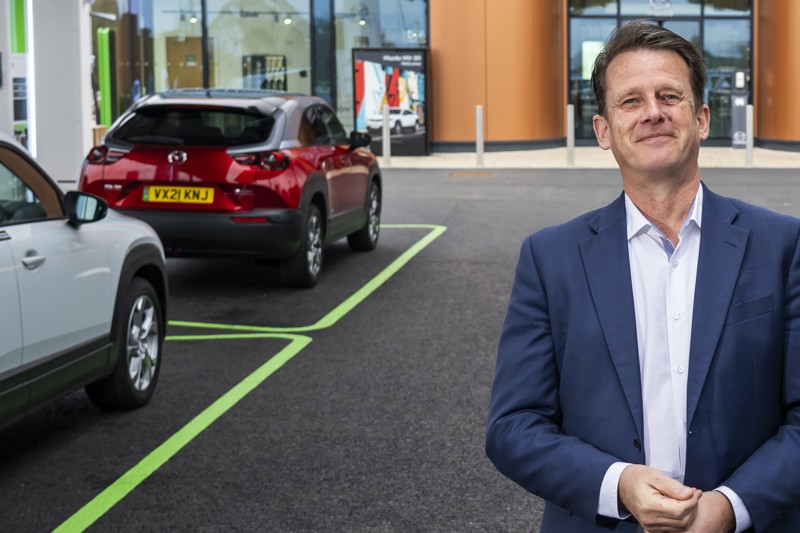
He admitted it was "disappointing" to not see any incentives for private buyers of electric vehicles in the recent Budget. But he added: “We need to change the narrative around EVs, from range to usage and encourage home charging installation, better public charging infrastructure as well as government incentives that consider cost throughout the ownership cycle.”
The MX-30, which has among the shortest range per charge (124 miles WLTP combined cycle) of all EVs currently offered in the UK's new car market, is now offered with a £6,000 Mazda deposit contribution.
Thomson said: “The Mazda MX-30 is the perfect EV when considering a purchase based on actual usage rather than ultimate range. A survey of our digital service records across 1.5 million Mazda cars in the UK highlights that the average daily mileage is just 26-miles, and we’ve found that customers who choose an EV as a second car or a shorter-range commuting car, find the Mazda MX-30 to be perfect, especially when combined with the convenience of a home charger”.

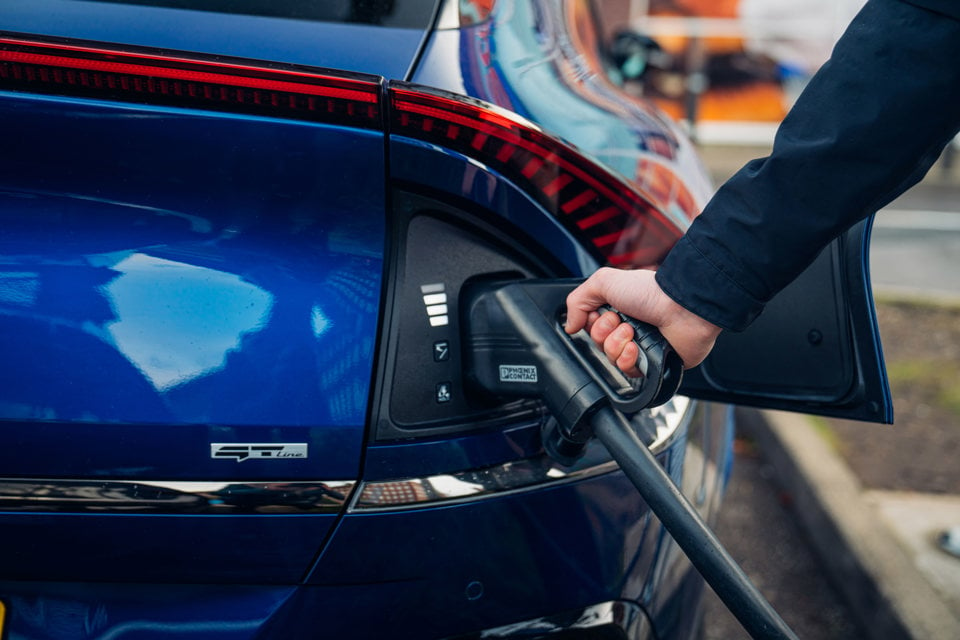




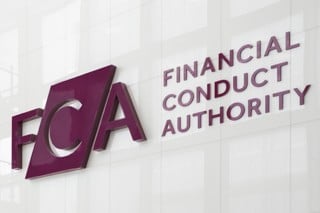
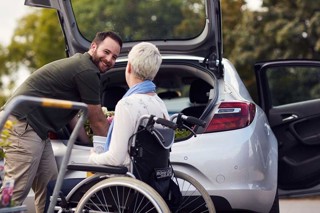
















Login to comment
Comments
No comments have been made yet.